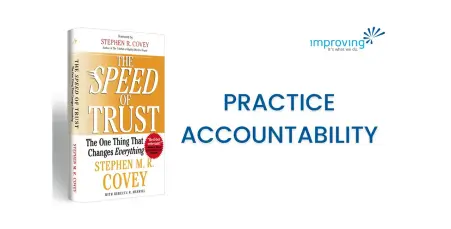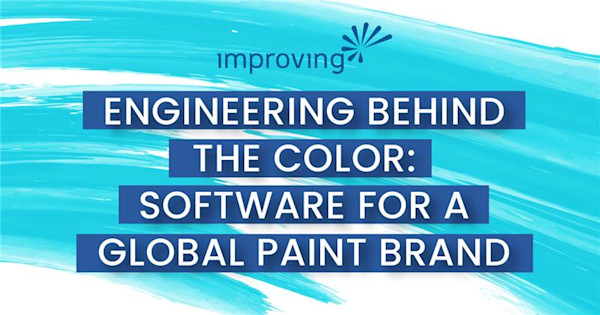Stephen Covey
That is because great teams rely on each other for success. We as team members trust each other to be accountable. We also expect that each teammate will be forthright when they see or are having the challenge to meet the responsibility.
What happens when people do not hold themselves accountable? Velocity at once drops from a project. If someone needs to be watched on a team, it will increase the time it takes to complete this work. We call this a trust tax, and this tax is added when micro-managing is necessary.
Subsequently, work begins to flow away from that person, making other people take on their responsibilities. It becomes a negative “do-loop” as we batch work, reduce execution to complete items in our work-stream, reduce agility to meet unexpected challenges from the client, and can endanger project success.
The magic of accountability is also a two-way street. What is being asked of us should be asked from every other person on our project team. It is a proactive responsibility to own our work and commit to its successful delivery. That ownership means we are accountable to understand it, create it, show it, and refine it as needed for project success. It is truly a mindset. The key to accountability, at its core, is through ownership, communication, and equity.
Ownership
There is no way around owning something. It is a yes-or-no-question. We all have that moment in our consulting career when the snap of a new project is dulled because it to like something we have done before.
Or, we could have a spell where have not had the consulting experience to deal with client internal drama or a tough project timeline. This is where the adage “hold fast” comes to mind. When we take ownership, we are not only making a commitment to get something done but will be accountable to see it through.
So why do people say no to doing work they are not comfortable with? Often it is a lack of support. Support can be through peer-reviewing work, the time to get familiar with recent technology, development language or architectural concept, or just the fear of letting people down.
We need people to feel supported to figure out what needs to be done with each task. We need to have the right environment created so people can reach out to one another. This leads to communication.
Communication
Naturally, the straightforward way to foster effective communication is to have scheduled time for teams to converse. We can walk through daily responsibilities and what each person is accountable for. Each team member should share how much has been carried out in the work being done, and if they need help based on a new discovery or technical challenge they have not met before.
If there is a problem, giving a person the correct environment to be able to say they need support to meet their delivery, makes the cost of “failure” incredibly low. This is sounding suspiciously like a daily stand-up, doesn’t it? There is a reason stand-ups are successful, it reduces the enormity of accountability.
Effective communication means that sometimes difficult conversations will occur. If people feel accountable, that can make the conversation emotional if they are invested in their work’s success. It is natural to want to avoid these prickly situations. But we should not feel this way.
We would be robbing someone of their ability to grow and navigate these challenges. Giving someone the ability to “own up” to their inconsistencies creates trust if the environment is supportive to help correct them. It also makes people realize that they cannot avoid questions or observations that will hold them accountable. The lingering silence these conversations sometimes produce illustrates that team members will be held accountable to meet their commitments. This leads to equity.
Equity
Equity means fair and impartial. It is the final, essential ingredient to prove lasting accountability with project teams. There is always an incubation period when a new team comes together and is learning about each other. Communication gaps are addressed, and definitions of who owns what and what is expected from that ownership are discussed.
But after this period, a natural rhythm should set in. Every person should receive the same level of inquiry, in addition to the same level of support and camaraderie when given the podium to share what they have taken on to be accountable for. We are all in this boat together. Our success is shared as well as our failures, and each one of us is critical to project success.
We should feel like we have taken on suitable and challenging work. We should feel that expectations are the same across the team and each member is accountable for an essential element for project success. That ownership means each one of us will strive to meet challenges head-on, reach out when we are struggling, and expect teammates to do the same. We should be willing to help if someone reaches out. We should also be able to raise concerns as well. A positive proactive approach to how we can solve the problem together leads to a better result. All for one and one for all.
Our interlocking expectations of accountability, to ourselves and each other, means taking ownership of our work and its challenges, addressing problems quickly and soberly, and reaching out for support. This leads to that magic esprit de corps we are all trying to set up with a team, on a project, or with a client. It sharpens our attachment to each other, gives us purpose to meet our delivery expectations, and supplies energy to meet project success.
To learn more about how we prioritize practicing accountability and all of the other trust behaviors at Improving, reach out.








